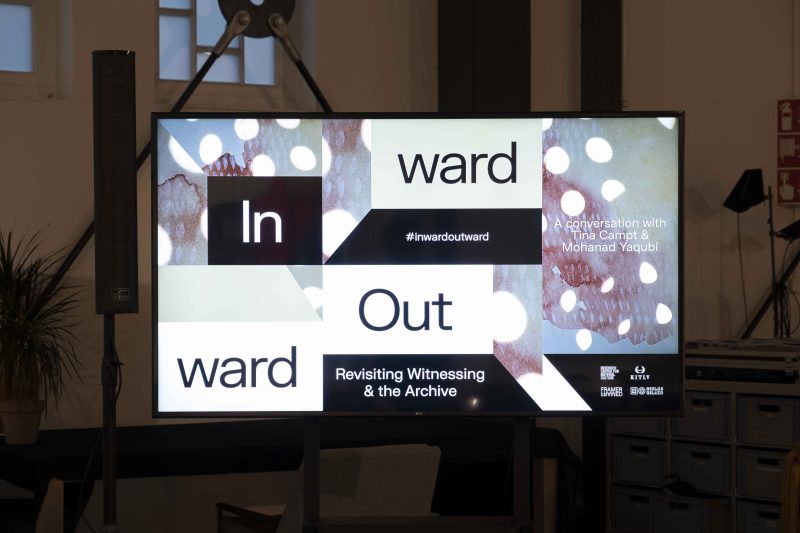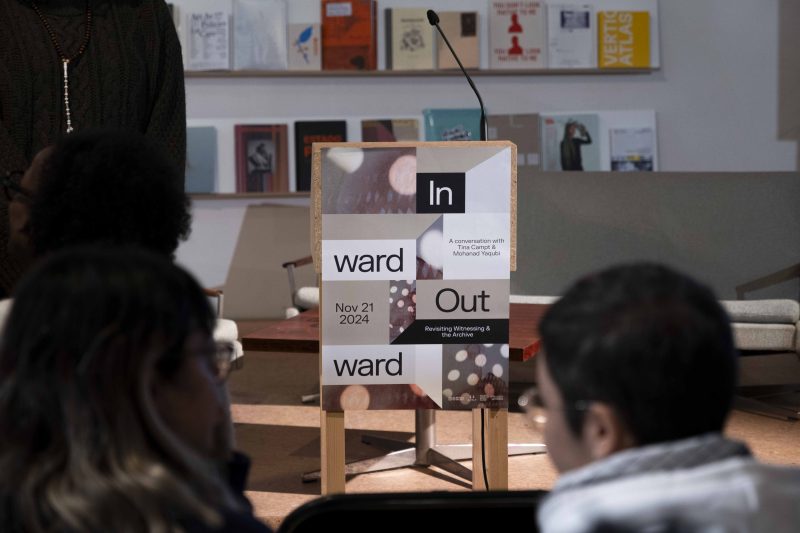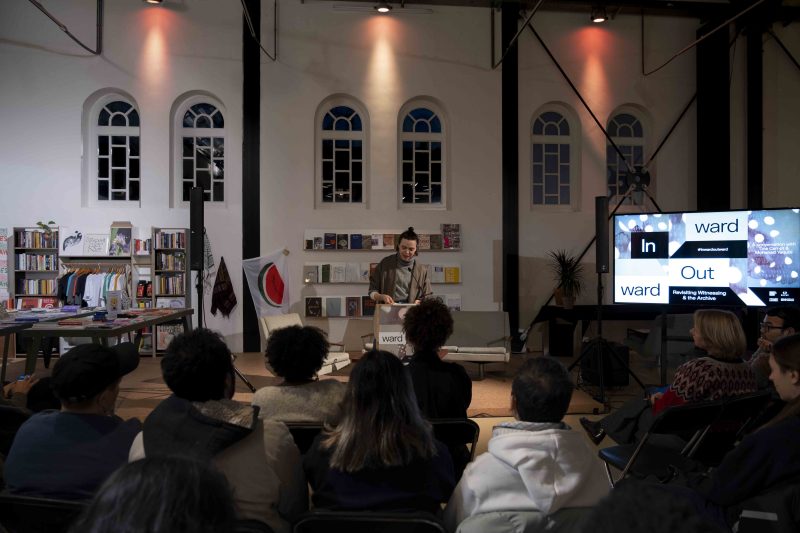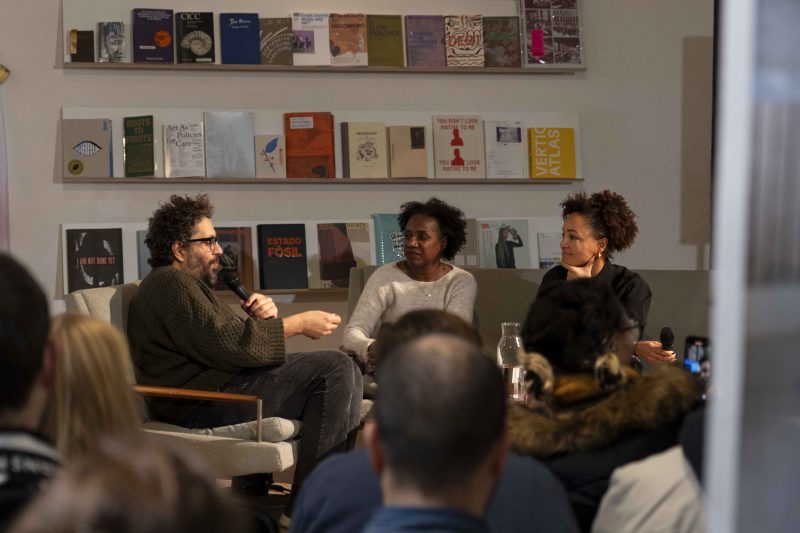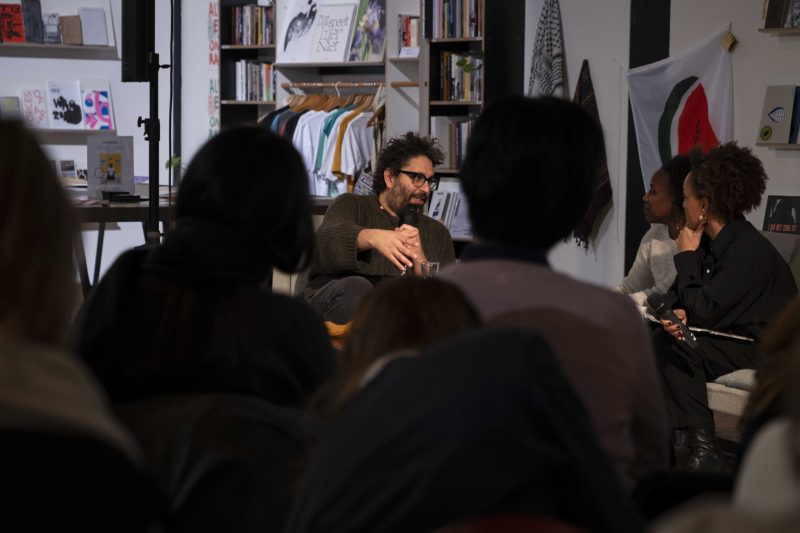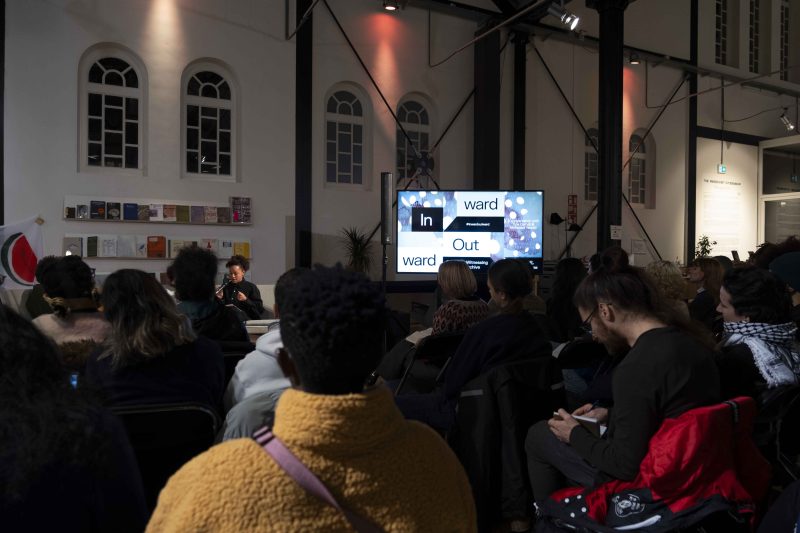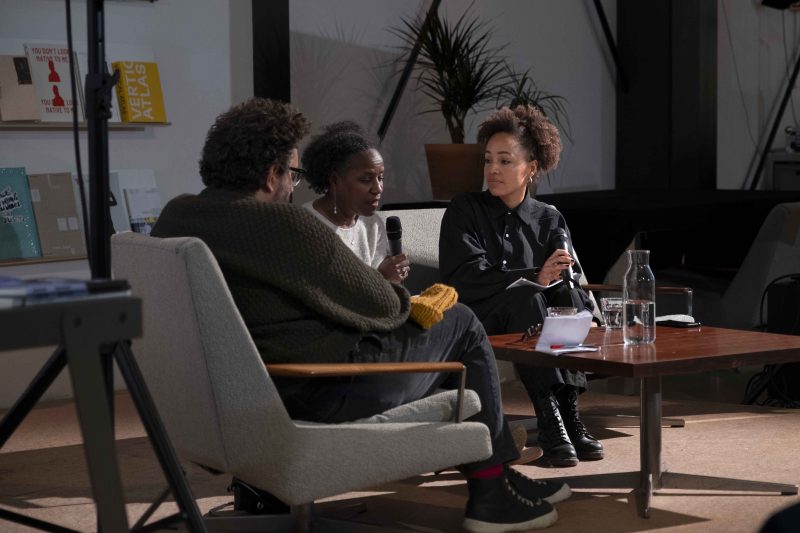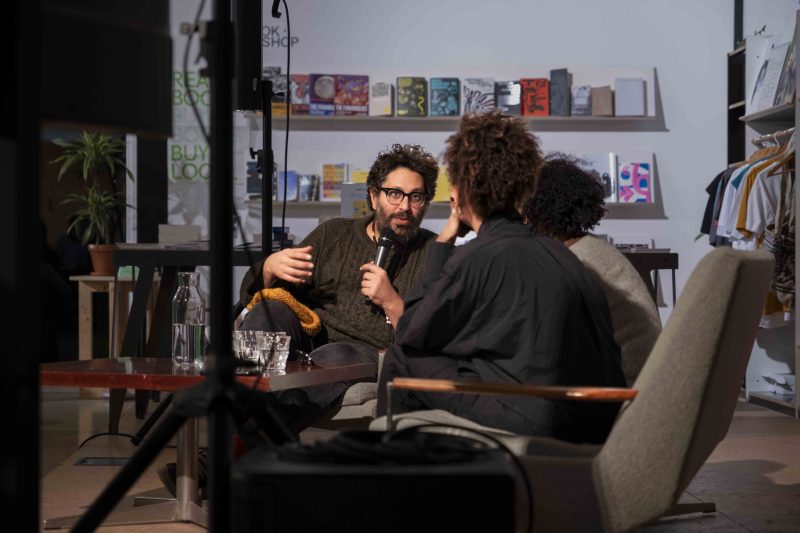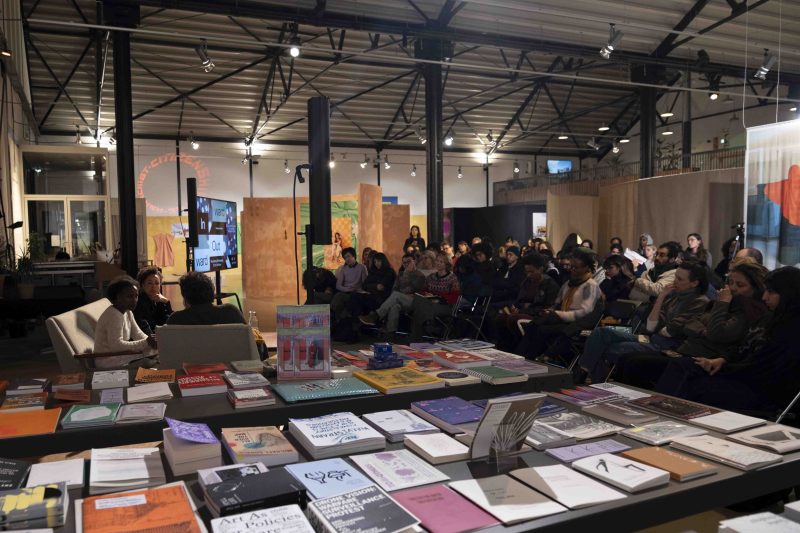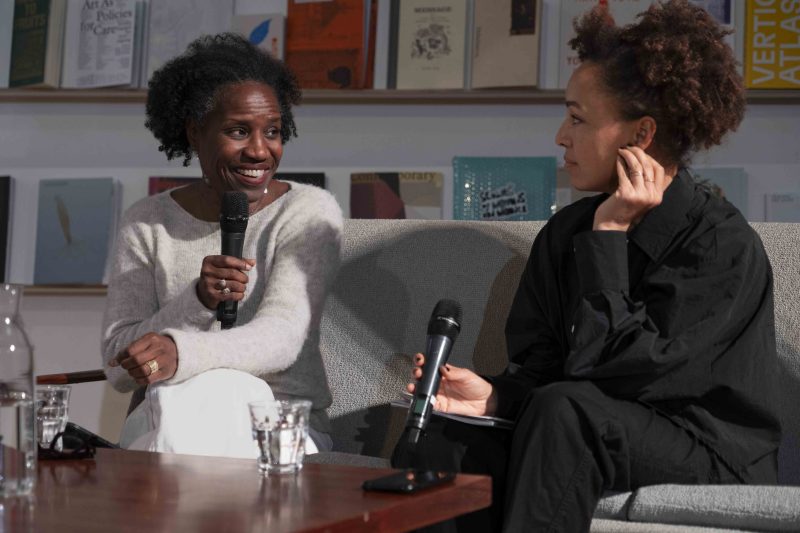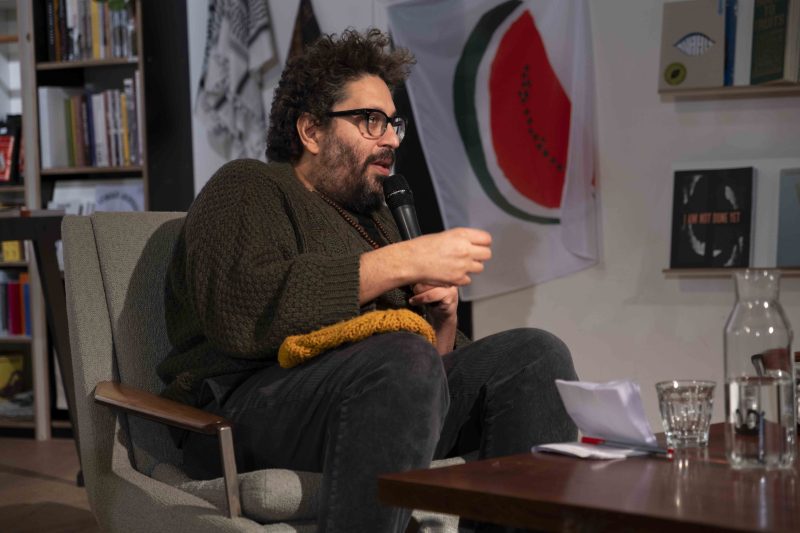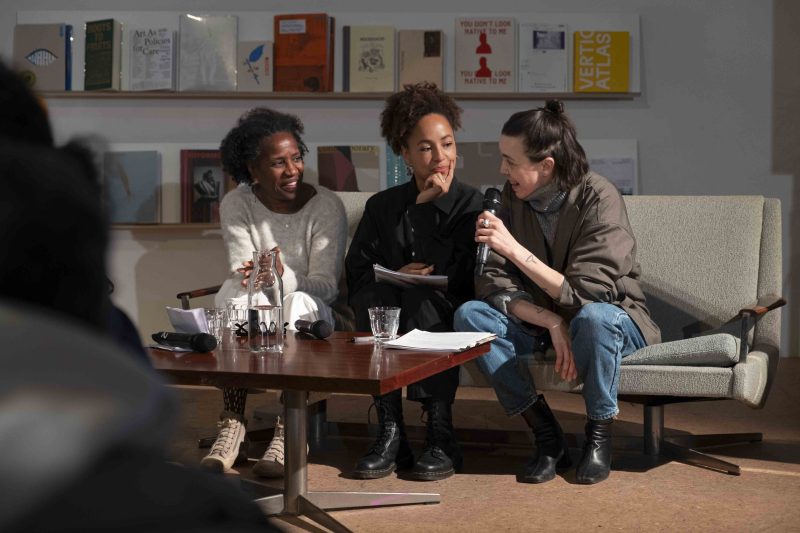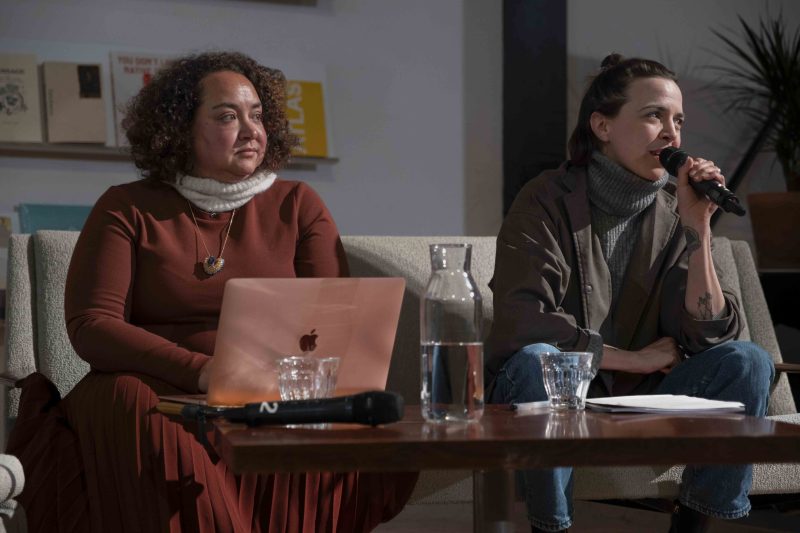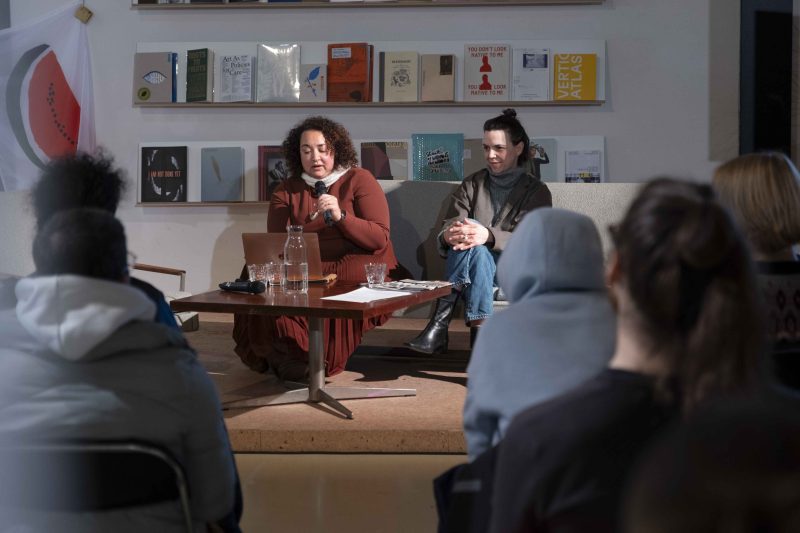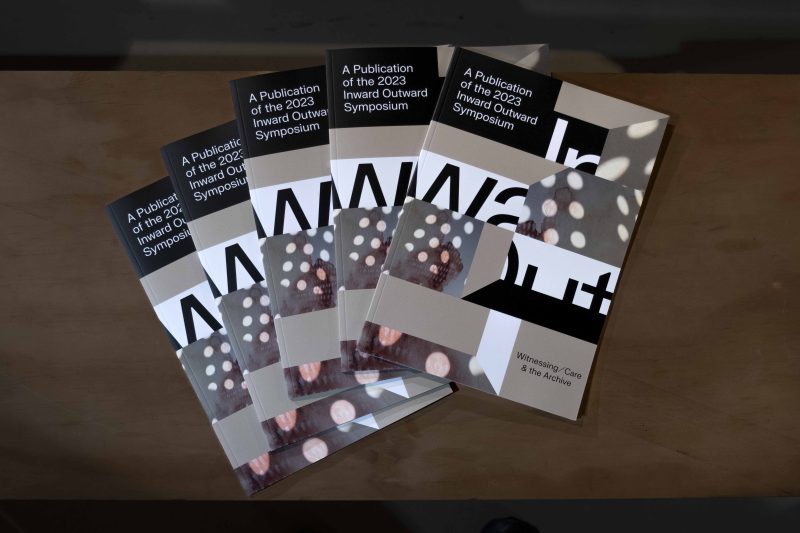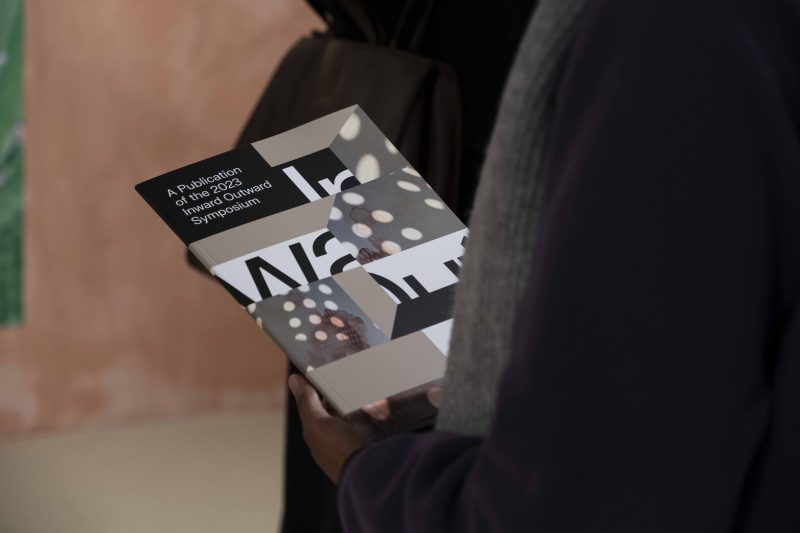Revisiting Witnessing & the Archive
Past Event: Thursday November 21, 2024

Revisiting Witnessing & the Archive
A Conversation with Tina Campt & Mohanad Yaqubi
Inward Outward investigates the status of moving image and sound archives as they intertwine with questions of coloniality, identity and race. Here, the archive is understood as resting in both physical structures (e.g. national, regional, local or personal) and less tangible ‘cultural archives’ (e.g. beliefs, knowledge, collective memories). Through a symposium series, publication, workshops and other events, we bring theory and practice into dialogue by drawing together people from different professional and creative backgrounds.
Last year, in March 2023, Inward Outward initiated a conversation on how concepts of witnessing and care engage with sound and moving image archives in the form of a two-day symposium. Rather than engage with a new theme this year, ongoing events press us to return to these themes and conversations. In doing so, we hope to extend the threads sewn in 2023 to address the brutal escalation of long-held settler colonial projects as they redraw what witnessing, care and archival work might entail right now.
Read more +
For 2024, we will take a different approach in order to revisit these themes. The programme features an afternoon working session with James Parnell (by invitation), and an early evening conversation between scholar Tina Campt and filmmaker Mohanad Yaqubi followed by the launch of the last symposium’s edited collection. Tina Campt and Mohanad Yaqubi will think together on how film practices and sonic and visual archives resonate with cycles of colonial and racist violence, as well as the challenges we face as we witness, carefully archive, and resist their unfolding. What does it mean to be critical of colonial archives and their formation in a time when physical sites of memory — archives, universities, museums, monuments, and shrines — are actively and intentionally being destroyed by war? What are the ethics of archival knowledge-work intent on protecting past, present and future memory at this moment?
Programme
Day 1 – Thursday November 21, 2024
What do you think is worth fighting for?
Conflict is a natural part of life, but that doesn’t mean it’s always easy. In this workshop, we will talk about the different types of conflict we might find ourselves engaged in: interpersonal conflicts, conflicts with archival material, structural conflicts, and everything in between.
How do you naturally engage in conflicts? How can relationship dynamics impact your strategy? What are your own limits within a confrontation? How do you find the core issues of a conflict?
Led by James Parnell, together we will discuss previous fights and explore ways to navigate conflict. We will conclude with a conflict game, where we will practice actively engaging in a conflict.
WORKING SESSION FACILITATOR
→ James Parnell (Curator, Facilitator, Dancer & Zinester)
Tina Campt and Mohanad Yaqubi will think together on how film practices and sonic and visual archives resonate with cycles of colonial and racist violence, as well as the challenges we face as we witness, carefully archive, and resist their unfolding. What does it mean to be critical of colonial archives and their formation in a time when physical sites of memory — archives, universities, museums, monuments, and shrines — are actively and intentionally being destroyed by war? What are the ethics of archival knowledge-work intent on protecting past, present and future memory at this moment?
A CONVERSATION WITH
→ Tina Campt (Roger S. Berlind ’52 Professor of Humanities)
→ Mohanad Yaqubi (Filmmaker, Producer, one of the Founders of Idioms Film)
MODERATOR
→ Alana Osbourne (Radboud University)
Practical info
Venue Address
Framer Framed
Oranje-Vrijstaatkade 71
1093 KS Amsterdam
Registration
You can register for this event free of charge here.
We expect that there might be a waiting list, so if it turns out you are not able to attend, please cancel your registration to free up your spot for someone else. Thanks!
About Venue
Framer Framed is a platform for contemporary art, visual culture, and critical theory and practice. Each year the organization presents a variety of exhibitions in collaboration with both emerging and established international curators and artists. An extensive public program is organized alongside these exhibitions in order to shed light on the topics concerned, and provide a wide range of perspectives. With this common space for dialogue, Framer Framed aims to show a plurality of voices in a globalized society.
Framer Framed is open, free of charge, Tuesday through Sunday from 12:00-18:00 including during the Inward Outward symposium. Check out Framer Framed’s agenda to view the current program.
Accessibility
All of the facilities of Framer Framed are accessible via wheelchair. The first floor is accessible via a lift for those who cannot use the stairs. Children are welcome at Framer Framed; there is a space for them to play and explore on the first floor, which is also accessible to wheelchair users via the lift.
Toilets
There are two gender-neutral toilets on the ground floor at the back-left of the building. A wheelchair-accessible toilet is also available.
Service Dogs
All service dogs are welcome to Framer Framed.
Parking Spots with Wheelchair Access
The nearest parking spaces for people with mobility impairments are on the Linnaeuskade. You can find all Accessible Parking spots in Amsterdam on this map (this information is only available in Dutch). Framer Framed is located in a pedestrian area. The pavements to Framer Framed are both wide and suitable for wheelchairs. You can also park at Q-Park Oostpoort which has spaces for blue badge holders and a lift.
Parking
You can park at Q-Park Oostpoort or along the Linnaeuskade.
Public Transportation
The fastest way to get to Framer Framed from Amsterdam Central Station is by train to Muiderpoort Station. The Sprinter from Rotterdam Central also stops at Muiderpoort Station. From there it is about a 7-minute walk. Framer Framed can be reached with Tram 19 and Bus 41; get off at the Oostpoort stop.
Photo & Video Documentation
Please be aware that we will be photo and video documenting the symposium.
The video recording will solely be for archival purposes and will not be shared publicly.
The photographer is documenting the event with the idea that we will share some of these photos publicly. If you would not like to be photographed please feel welcome to tell the photographer or one of the Inward Outward organizers.
Food & Drinks
You are welcome to bring your own food and drinks inside. Please be careful around the artworks in the main space.
Contact
Please feel free to contact the Inward Outward organizers with questions, comments or feedback at inwardoutward@beeldengeluid.nl
*All times listed in the program are the CET time zone.*
Registration
You can register for this event free of charge here.
We expect that there might be a waiting list, so if it turns out you are not able to attend, please cancel your registration to free up your spot for someone else. Thanks!
Organizers
Inward Outward is organized by the Royal Netherlands Institute of Southeast Asian and Caribbean Studies (KITLV), the Netherlands Institute for Sound & Vision (Sound & Vision), with special support from the Nationaal Museum van Wereldculturen’s Research Center for Material Culture (RCMC). This event edition is held in collaboration with Framer Framed.

